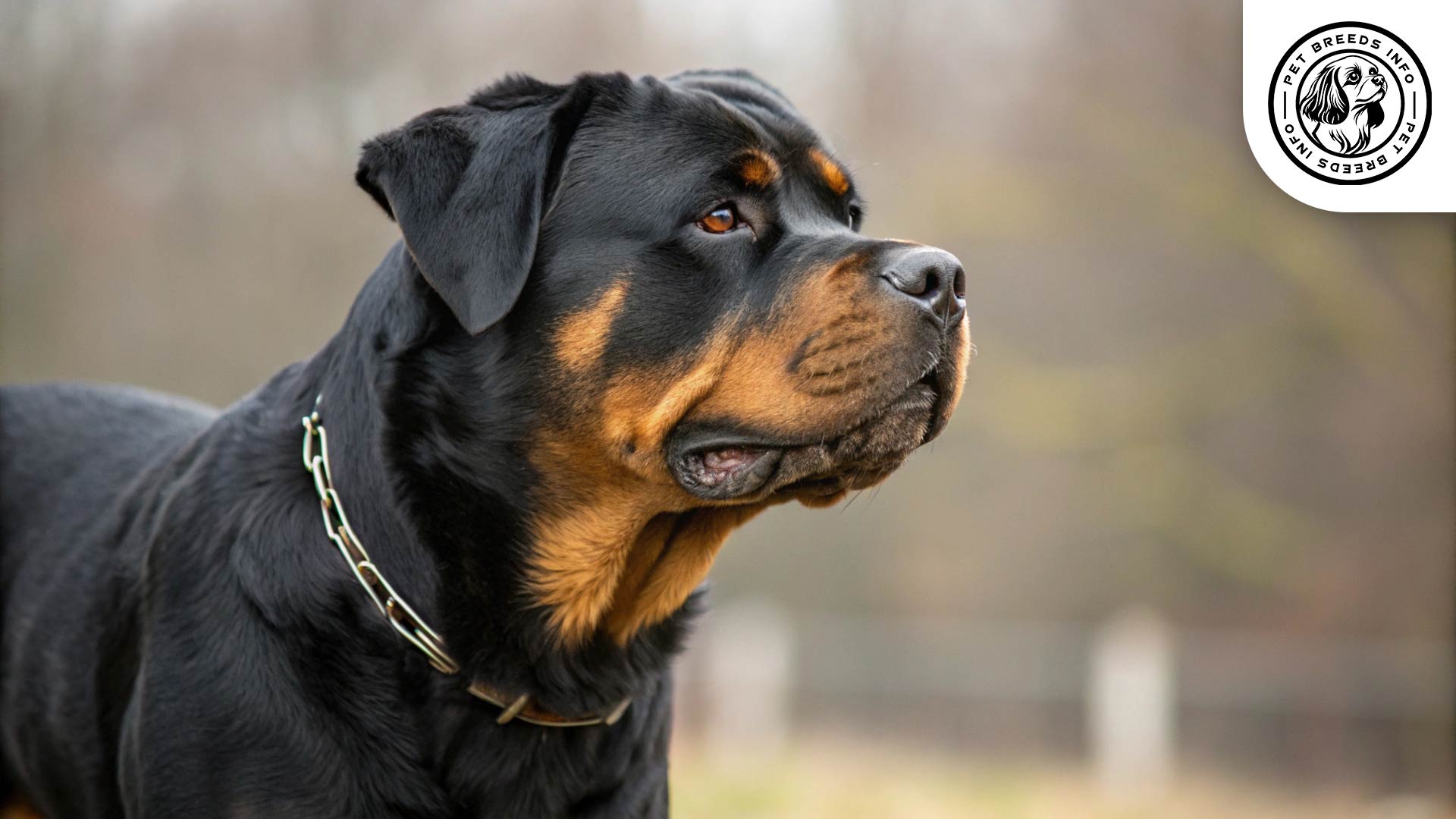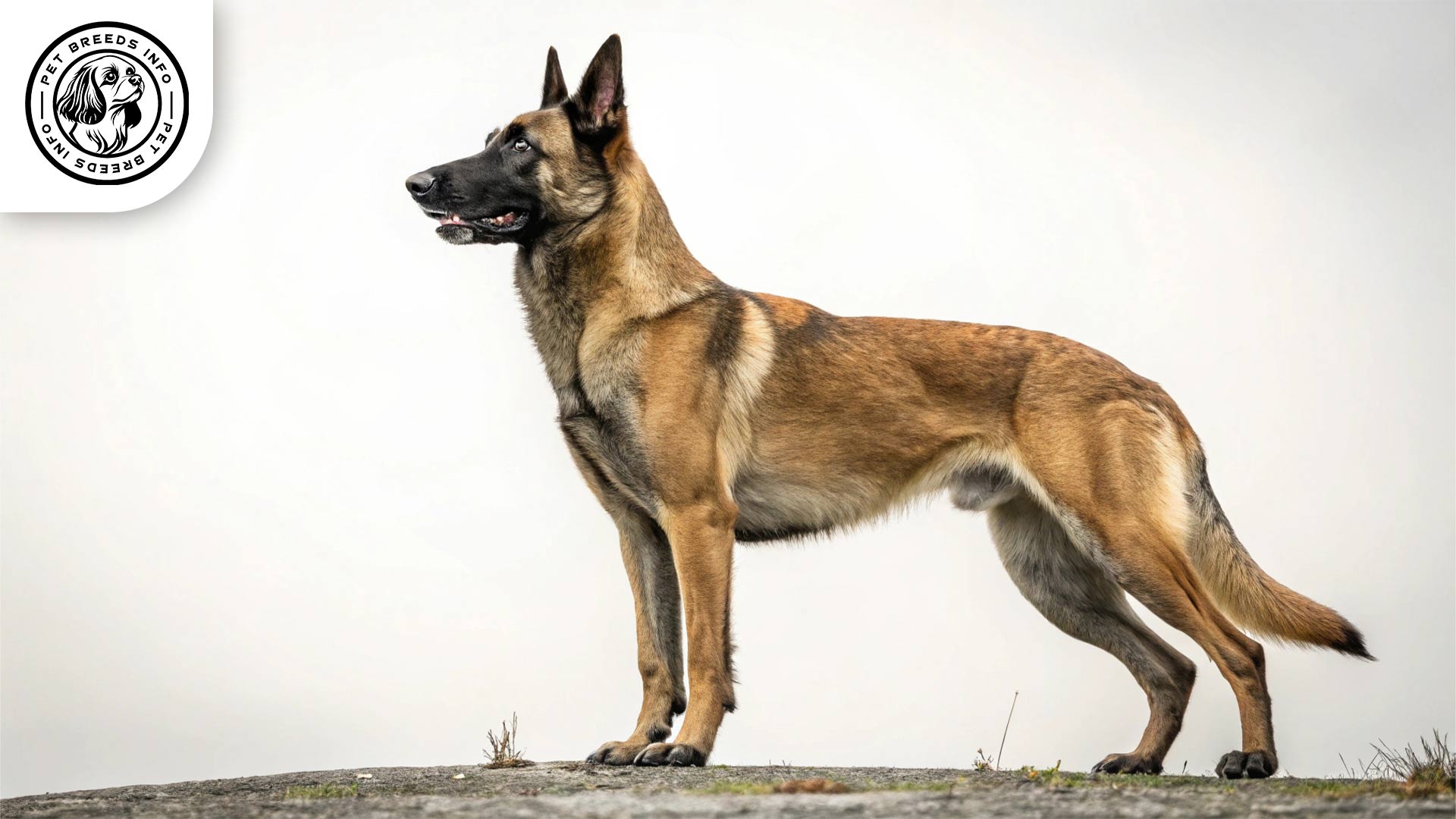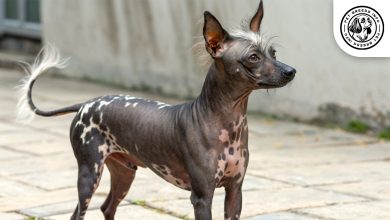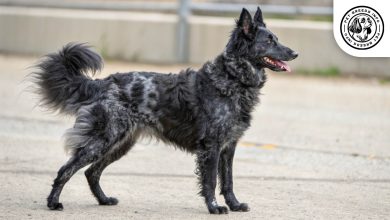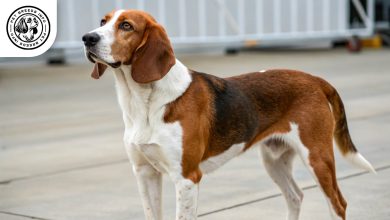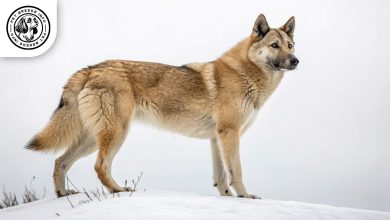Rottweiler Dog Breed: Size, Health, Price & Personality
General Introduction of the Breed
The Rottweiler, also known as “Rottweiler Metzgerhund” in German, originates from Germany. Historically, Rottweilers were used as herding and guard dogs by cattle traders in the town of Rottweil, from which they get their name. They were later employed in various roles such as police, military, and search-and-rescue dogs due to their strength, intelligence, and loyalty.
Table of Contents
| Color | Black with distinct rust or mahogany markings |
| Weight | Males: 95-135 lbs (43-61 kg); Females: 80-100 lbs (36-45 kg) |
| Lifespan | 9-12 years |
| Diet | Balanced diet of high-quality dry kibble, wet food, or a raw diet. Avoid chocolate, grapes, onions, splintering bones, and excessive fatty foods. |
| Care | Regular exercise, weekly brushing, bathing when necessary, regular nail trimming, ear cleaning, dental hygiene. Needs ample space, but can adapt to apartment living if adequately exercised. Tolerates cold better than heat. |
| Health | Prone to hip and elbow dysplasia, heart issues, progressive retinal atrophy, and bloat. Regular veterinary check-ups, vaccinations, and preventive care are essential. |
| Nature | Highly intelligent, quick learners, confident, loyal, protective, affectionate with family, may be reserved around strangers. Requires structured training and socialization. |
| Price | $1,200 to $3,500 (puppy), adoption from shelter is a more affordable option. |
Physical Characteristics
Rottweilers are large, powerful dogs with a robust build. Males typically stand between 24 to 27 inches (61-69 cm) tall and weigh 95-135 lbs (43-61 kg), while females are slightly smaller at 22 to 25 inches (56-63 cm) tall and 80-100 lbs (36-45 kg).
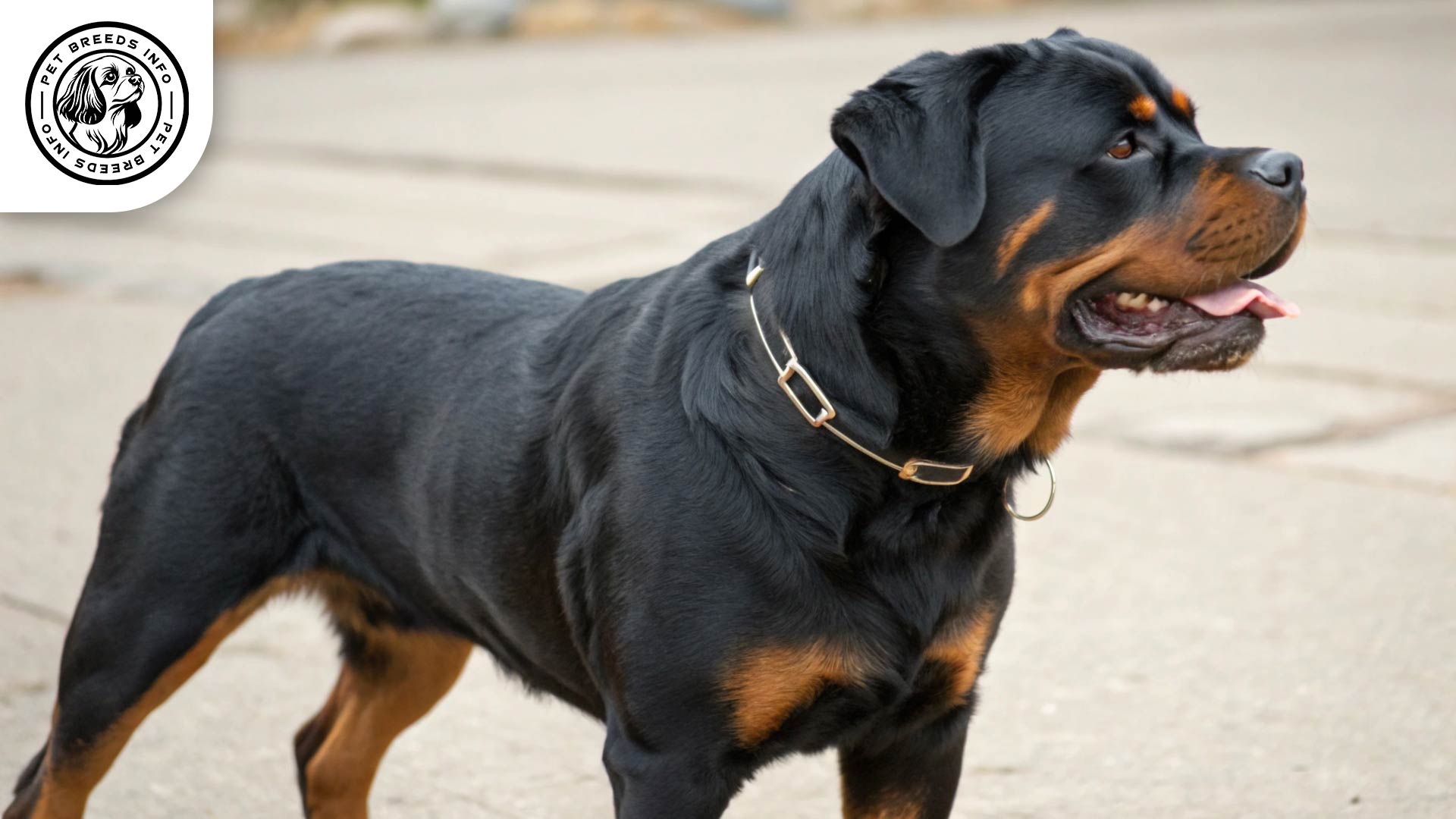
They have a short, dense, and straight double coat, which is always black with distinct rust or mahogany markings.
Their eyes are medium-sized, almond-shaped, and dark brown. The ears are medium-sized, triangular, and set high, folding forward close to the head. Traditionally, the tail was docked, but natural tails are increasingly common. They have a broad head, strong jaws, and a muscular, well-balanced body.
Read More: Rhodesian Ridgeback
Personality and Temperament
Rottweilers are highly intelligent and quick learners. They are confident, loyal, and naturally protective of their families. They require structured training to ensure proper socialization.
They have a moderate to high energy level, needing daily physical and mental stimulation. They form strong bonds with their owners and are very affectionate with their families.
Despite their guarding instincts, well-socialized Rottweilers can be good with children and other pets. They may be reserved around strangers but are not aggressive without reason. Their sensitivity to their surroundings makes them responsive to changes in their environment.
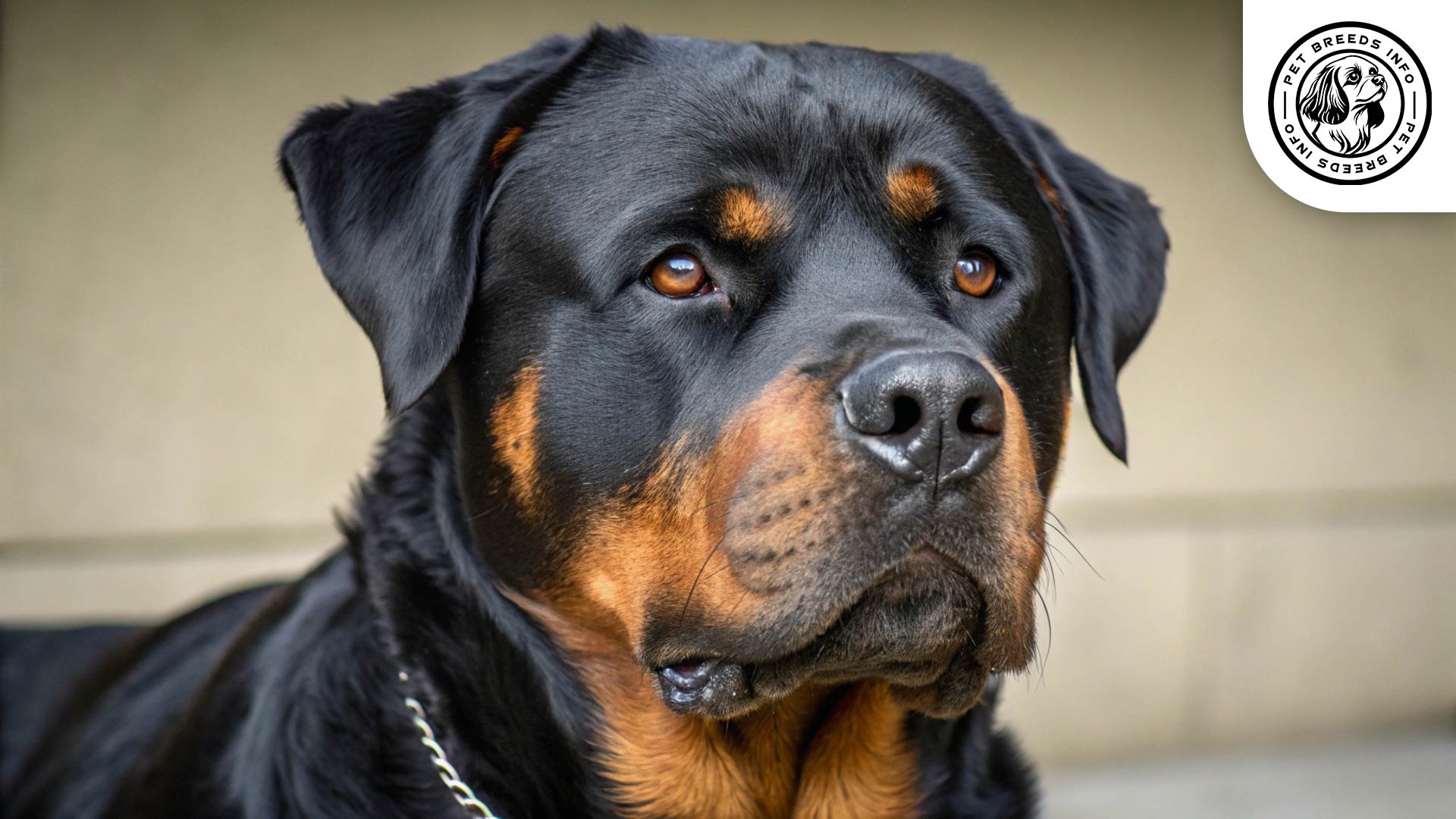
Care and Maintenance Requirements
Rottweilers need regular exercise, including daily walks, play sessions, and training activities to keep them mentally and physically fit.
They are best suited for homes with ample space but can adapt to apartment living if adequately exercised.
They shed moderately and require weekly brushing to maintain their coat. Bathing should be done when necessary, and nails should be trimmed regularly. Ears should be cleaned to prevent infections, and good dental hygiene should be maintained.
They tolerate cold better than extreme heat, but they should not be exposed to harsh weather conditions for extended periods.
Diet and Nutrition
Rottweilers thrive on a balanced diet of high-quality dry kibble, wet food, or a raw diet. The food should be rich in protein, healthy fats, and essential nutrients.
Avoid foods like chocolate, grapes, onions, bones that splinter, and excessive fatty foods.
Adult Rottweilers typically require two meals per day, with portion sizes varying based on weight, age, and activity level.
Read More: Portuguese Podengo Pequeno Dog
Health and Common Medical Issues
Rottweilers are prone to certain genetic conditions, including hip and elbow dysplasia, heart issues, and progressive retinal atrophy. They may also experience bloat, which is life-threatening if not promptly addressed.
Regular veterinary check-ups, vaccinations, and preventive care are essential. Their average lifespan ranges from 9 to 12 years.
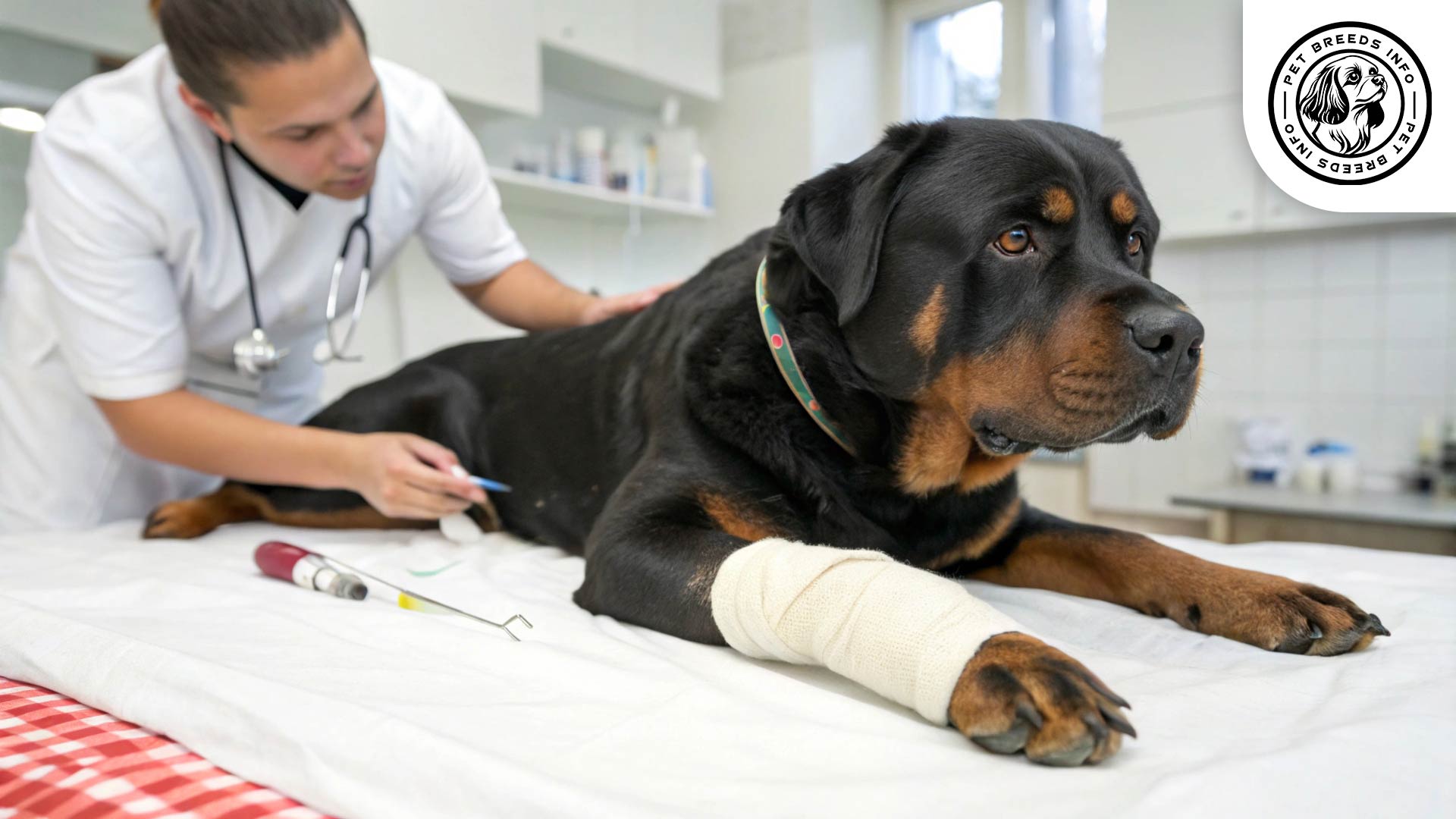
Training and Behavior Management
Rottweilers are highly trainable but require consistent leadership and positive reinforcement methods. Early training and socialization are crucial to ensure they grow into well-mannered dogs.
They respond well to firm yet kind training, including obedience training and structured activities to channel their intelligence and energy.
Interaction with Other Animals and Humans
Rottweilers can be excellent with children when properly trained, though supervision is recommended due to their size and strength.
They may be dominant towards other pets, especially unfamiliar animals, but they can coexist peacefully with proper socialization.
This breed is well-suited for families and individuals seeking a loyal, protective, and affectionate companion. While they are independent, they thrive on companionship and do not do well if left alone for long periods.
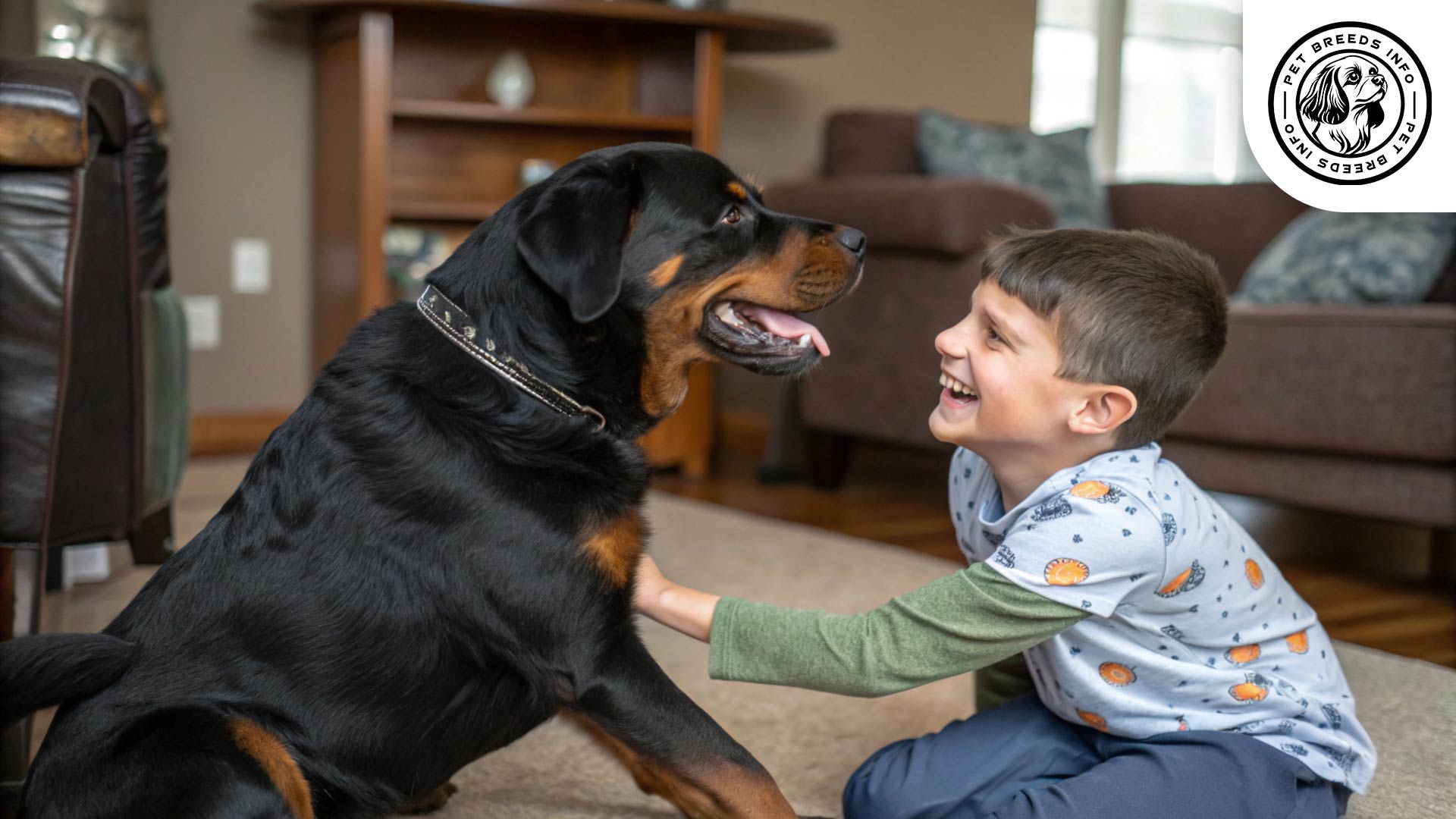
Price and Availability
The cost of a Rottweiler puppy varies depending on pedigree, breeder reputation, and location, generally ranging between $1,200 to $3,500. Adopting from a shelter is a more affordable option.
Prospective owners should seek reputable breeders or adoption centers to ensure a healthy and ethically bred dog.
Read More: Pointer Dog
Conclusion and Final Thoughts
The Rottweiler is an intelligent, affectionate, and protective breed best suited for experienced dog owners who can provide consistent training and leadership.
They thrive in active households where they receive enough exercise, mental stimulation, and companionship.
Before getting a Rottweiler, owners should consider their space, time availability, and commitment to proper training. With the right care and upbringing, Rottweilers make loyal and loving companions.
FAQ
What are the main characteristics of a Rottweiler?
Rottweilers are large, powerful dogs known for their loyalty, intelligence, and protective nature. They have a distinctive black coat with rust or mahogany markings and require consistent training and socialization.
What are the typical health concerns for Rottweilers?
Rottweilers are prone to certain genetic conditions, including hip and elbow dysplasia, heart issues, progressive retinal atrophy, and bloat. Regular veterinary check-ups and preventive care are essential.
How much exercise does a Rottweiler need?
Rottweilers have a moderate to high energy level and require daily exercise, including walks, play sessions, and mental stimulation. They thrive in active households.
Are Rottweilers good with children and other pets?
Well-socialized Rottweilers can be excellent with children, though supervision is recommended due to their size and strength. They can coexist peacefully with other pets with proper socialization, but may be dominant towards unfamiliar animals.
What is the average cost of a Rottweiler puppy?
The cost of a Rottweiler puppy can range from $1,200 to $3,500, depending on pedigree, breeder reputation, and location. Adopting from a shelter is a more affordable option.
